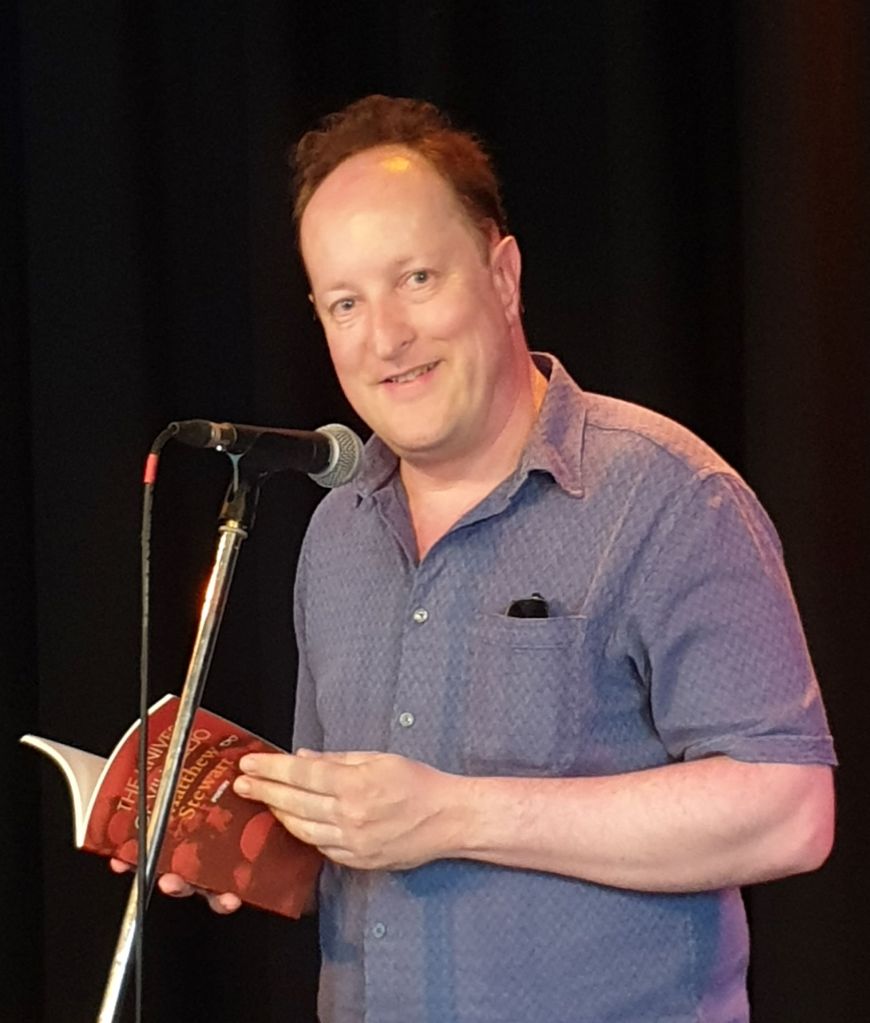
It’s a great pleasure to introduce this month’s guest poet Matthew Stewart, with three poems from his collection Whatever you do, just don’t. It was published by HappenStance Press to their usual high standards in 2023. The background of the jacket is an old map of Extremadura, Spain. The poem Gostrey Meadow was published in Stand. See below the poems for Matthew’s biography. I admire the attention to detail, precision, and economy of his poems: so much between the lines…
Banana
Come to think of it, she didn’t tell us
who’d got hold of the banana, or how,
and we forgot to ask, stunned by the news
that at ten years old she’d never seen one.
She was still proud her class had raffled it
for the war effort, still slightly mournful
at it turning black on her teacher’s desk
long before they drew the winning ticket.
She wouldn’t talk about gas masks, the Blitz,
the doodlebugs (how they changed to V2s) —
but she always recalled her fury
at the waste of bloody good food.
Wendsday
Halfway through the word and the week,
my pen used to pause and stumble,
tripped up by my eight-year-old tongue
and even now I still delight
in having learned at last to swap
the n and d and add the e.
I stumbled, too, after coming
to Spain. Shook off routines and rules.
Let a new language soak through me.
Two more hassle-packed, tensed-up days
till vino tinto y queso
instead of cod and chips.
Gostrey Meadow
Showing my son round, I notice
a father taking a picture
of his wife and son who’s melted
half an ice cream on his fingers
and the other half on his face.
It’s a copy of a photo
in our album. Same river.
Same heat-laden sky. Same roles.
Same spot on the bank. Same pose.
Our trees were ten feet shorter.
Biography
Matthew Stewart lives between Extremadura in Spain and West Sussex in the South of England. He works in the Spanish wine trade as a blender and exporter. His blog site ‘Rogue Strands’ is a respected source for poetry lovers, and he reviews widely for a range of publications. His first full collection was The Knives of Villalejo (Eyewear, 2017). Before that, there were two pamphlets from HappenStance:
Tasting Notes (2012) and Inventing Truth (2011).














